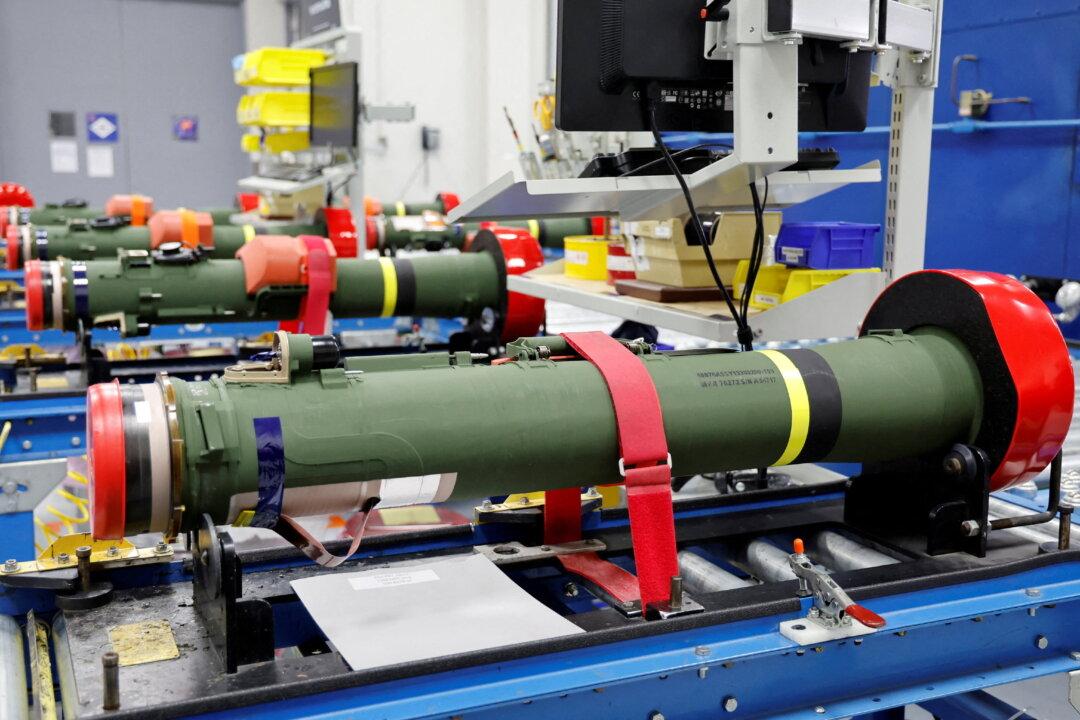U.S. aerospace and defense giant Lockheed Martin Corp. has said it plans to nearly double its production of Javelin missiles in the next couple of years to help beef up U.S. supplies and aid to Ukraine.
Lockheed Martin CEO James Taiclet announced the move in an interview on CBS News’ “Face the Nation“ on May 8. He said the company—which has sent some of its antitank weapons to Ukraine amid its fight against Russian forces—is aiming to ramp up production to 4,000 missiles per year.




